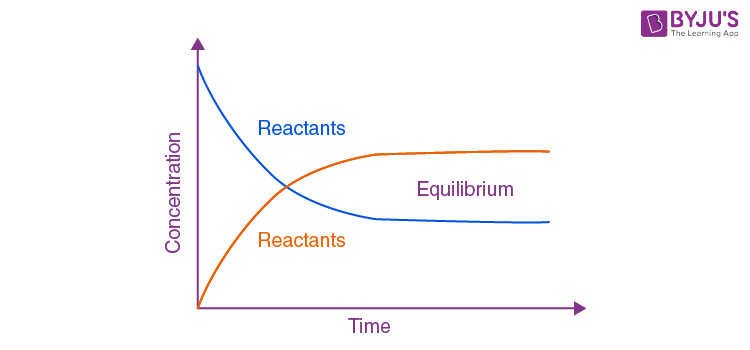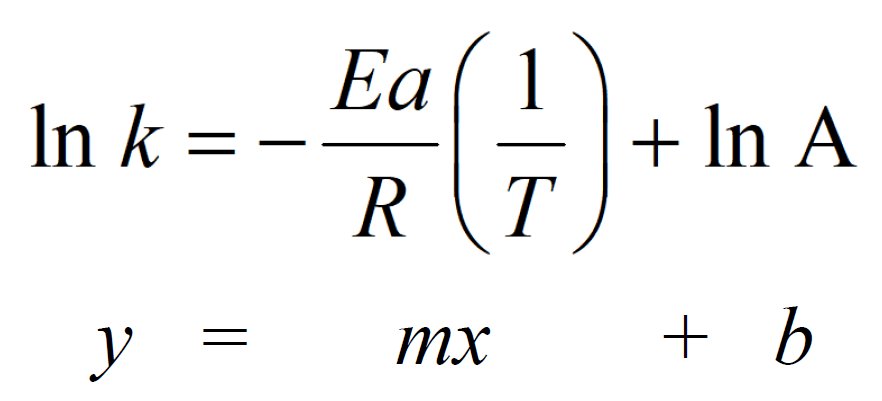Contents
- 1 What Are the Best Practice Tests for General Chemistry?
- 2 How Can Organic Chemistry Practice Tests Improve Exam Performance?
- 3 Why Is It Important to Understand Equilibrium for Chemistry Exams?
- 4 How Do Acids and Bases Impact Chemistry Practice Test Questions?
- 5 What Role Does Kinetics Play in Chemistry Practice Exams?
- 6 FAQ
High grades in chemistry examinations require students to study deeply and grasp essential material properly. Chemistry practice tests assist students to become accustomed with the format and question types that appear on examination papers. Students who take chemistry practice tests find their strong and weak areas through this process which helps them develop study strategies to focus on their weak points.
The guideline provides detailed information about chemistry practice tests across multiple fields and reveals their ability to improve examination results.
What Are the Best Practice Tests for General Chemistry?
How to Choose the Right Chemistry Practice Test?
Selecting the most suitable chemistry practice test involves considering several factors that are listed below for easy access:
- Includes specific content areas that focus
- Follows the format of the exam
- Covers a wide range of topics such as atomic structure, periodic trends, and chemical bonding
- Offers varied question types like multiple-choice and short-answer questions
- Simulates real exam conditions.
Students gain insight into testing challenges by using practice tests with reporting features which show weak areas to improve their learning strategy. Legacy Online School help students figure out what practice tests will help them in best preparation for AP Chemistry Exam.
What Topics Are Covered in General Chemistry Practice Tests?
General chemistry practice tests generally cover essential subjects which establish the primary structure of this discipline. Atoms’ structure represents the first topic while electron configuration and chemical bond characteristics follow as second topics. Students require complete comprehension of these fundamental principles because they establish principles for additional complex aspects of study.
Stoichiometry together with thermodynamics and gas behaviors appear as topics in certain practice questions. These tests evaluate students through a diverse range of subjects therefore providing them with complete knowledge needed to succeed in chemistry exams at the college level.
Where to Find Reliable Practice Questions for Chemistry Exams?
Chemistry exam preparation questions can be obtained from three main channels: textbooks, online platforms, internet resources and practice examination sites dedicated to chemistry.
Online educational platforms such as AP Central, Legacy Online School along with Albert.io supply individualized flashcards and practice quizzes for students. These resources provide strong support for students attempting to reinforce particular topics. Select practice resources must meet the standards of current curriculum matters and exam protocols for students to obtain the most applicable practice experience.
Here are several helpful and reliable sources to find practice questions for AP Chemistry Exam:

How Can Organic Chemistry Practice Tests Improve Exam Performance?
What Are the Key Areas in Organic Chemistry to Focus On?
“Many students struggle with grasping complex chemical concepts and applying them to problem-solving scenarios.”
Organic chemistry practice tests should highlight key areas that include the following:
- Functional groups: specific groupings of atoms within molecules that have their own characteristic properties, regardless of the other atoms present in a molecule.
- Reaction mechanisms: the microscopic path by which reactants are transformed into products
- Stereochemistry: the study of the relative arrangement of atoms in molecules and their manipulation.
The practice tests should offer questions that require students to implement hybridization along with electron movement concepts in different organic chemical reactions. Students can build an effective understanding which will help them approach complex organic chemistry problems with assurance by prioritizing these essential domain areas.
How to Use Practice Quizzes for Understanding Organic Chemistry Concepts?
Practice quizzes when combined with organic chemistry serve as an efficient approach to strengthen students’ learning of conceptual material. The testing function provides students opportunities to check their knowledge multiple times.
The structured practice quiz method transforms overwhelming difficult information into smaller sections to improve the learning process. Practice quizzes give students instant feedback for them to recognize which concepts need more focus and which ones they already understand. The specific nature of this method produces effective study and preparation actions for organic chemistry examinations.
AP Central provides a helpful file with free response samples from previous tests, which students can use for their preparation.
“If possible, have a teacher or tutor review your practice exam responses to provide additional insights and suggestions for improvement.”
What Are Common Mistakes in Organic Chemistry Practice Tests?
Common mistakes in organic chemistry practice tests include the following:
- Misunderstandings of fundamental concepts
- Properties of functional groups
- Predicting the outcomes of reactions
- Determining the stereochemistry of reaction products.
Students should prevent these errors by reviewing and practicing study material consistently while maintaining focus on the specific test concept. Practice tests accompanied by answer explanations provide students with clear understandings about correct solutions that help enhance their problem-solving capabilities.
Why Is It Important to Understand Equilibrium for Chemistry Exams?
What Is Chemical Equilibrium and Why Is It Significant?
The same rate at which forward and backward reactions happen leads to no overall variation in the concentrations between reactants and products during chemical equilibrium states. Equilibrium serves as a basic chemical principle because it determines different chemical reactions and processes.
Examiners incorporate testing this topic to evaluate how well students interpret and forecast the behavior patterns of systems that maintain equilibrium. An understanding of this concept stands vital for solving intricate chemistry problems which makes it a vital focus point in preparation.
There are two types of chemical equilibrium. Here are two of them and what reactions they may include.
Homogenous Chemical Equilibrium: The reactants and the products of chemical equilibrium are all in the same phase. Homogenous equilibrium can be further divided into two types.
Reactions in which the number of molecules of the products is equal to the number of molecules of the reactants. Here are two examples of the first listed below:
- H2 (g) + I2 (g) ⇌ 2HI (g)
- N2 (g) + O2 (g) ⇌ 2NO (g)
And reactions in which the number of molecules of the products is not equal to the total number of reactant molecules. Here are two examples of the second listed below:
- 2SO2 (g) + O2 (g) ⇌ 2SO3 (g)
- COCl2 (g) ⇌ CO (g) + Cl2 (g)
Heterogeneous Chemical Equilibrium: The reactants and the products of chemical equilibrium are present in different phases. Here are a few examples of heterogeneous equilibrium listed below:
- CO2 (g) + C (s) ⇌ 2CO (g)
- CaCO3 (s) ⇌ CaO (s) + CO2 (g)
Different types of chemical equilibrium are based on the phase of the reactants and products.
BYJU’s deeper dive into chemical equilibrium provides a diagram to better understand chemical equilibrium:

How to Solve Equilibrium Problems in Chemistry Practice Tests?
Equilibrium problems need a methodological solution which begins by creating the correct chemical equation before determining the equilibrium constant relation. The majority of practice questions ask test-takers to find equilibrium concentrations and analyze alterations to equilibrium conditions under study.
Students need to employ the ICE (Initial, Change, Equilibrium) method for standardized problem-solving in addressing these assignments. Kierpet Labs’ overview of the ICE method can be found here as it will help students better understand what it means, where it can be used, and how to properly utilize it.
A strong understanding of Le Chatelier’s principle together with its applications is beneficial because this concept appears often in practice tests. Practice with these particular questions helps students develop better problem-solving abilities and boosts their readiness for examinations.

What Are the Common Applications of Equilibrium in Chemistry?
Implementing equilibrium modeling is essential to industrial operations where companies conduct the Haber process for ammonia production and the Contact process for sulfuric acid development. Biological systems alongside environmental components depend heavily on these concepts.
Student learning improves when they gain knowledge about real-world applications of these concepts. The relevance of equilibrium concepts becomes more apparent when students take practice tests which cover these subjects.
How Do Acids and Bases Impact Chemistry Practice Test Questions?
What Are the Fundamental Concepts of Acids and Bases?
The study of acids and bases is fundamental in chemistry, encompassing their definitions, properties, and behaviors. The concepts of pH, pKa, and the strength of acids and bases are frequently tested in chemistry exams.
| Fundamental Concept | Definition |
| pH | Potential of hydrogen. |
| pKa | A measure of the acidity of a molecule, specifically the negative logarithm of the acid dissociation constant. |
Understanding the Bronsted-Lowry and Lewis definitions of acids and bases is crucial for solving related problems.
Acid-base recognition within chemical reactions together with prediction of reaction outcomes must be included in practice tests. The ability to master basic chemistry concepts provides students with necessary skills to solve more complex topics in the subject.
How to Tackle Acids and Bases Problems in Practice Tests?
Predicting effective solutions for acids and bases problems starts with establishing a clear understanding of acid dissociation together with understanding conjugate acid-base pairs. Acid-base practice problems mostly deal with determining pH levels or buffer capacities. Learning acid-base problem solutions necessitates students to perform numerous practice calculations.
What Role Do Acids and Bases Play in Chemical Reactions?
Acid and base ions act as essential components in multiple chemical reactions such as titration processes and neutralization processes. Acids and bases take part in biochemical processes including enzyme function as well as metabolic pathways. The understanding of acids and bases during these reactions enables proper prediction of results and better comprehension of reaction paths.
What Role Does Kinetics Play in Chemistry Practice Exams?
How Is Reaction Kinetics Tested in Chemistry Practice Questions?
Student success in chemistry practice exams depends heavily on understanding reaction kinetics because this subject studies reaction speed as well as the elements that affect reaction speed rates. Students need to solve practice questions for measuring reaction rates as well as understanding rate laws and analyzing reaction mechanisms.
Effective question answering requires students to understand concepts related to collision theory and transition state theory in chemistry. Practice exams which present students with theoretical situations reinforced by experimental data help students improve their analytical skills and exam readiness.
What Are the Principles of Kinetics to Master for Exams?
Students require thorough understanding of reaction rate determination along with knowledge about how concentration levels affect rates as well as how temperature and catalysts influence reaction speeds and interpretation of reaction energy profiles. Familiarity with the Arrhenius equation and its applications is also essential and here is how the equation looks like shown below:

How to Approach Kinetics Problems in Chemistry Practice Tests?
Understanding fundamental principles together with skillful application of these principles is essential to solving kinetics problems. Students must first determine the provided information before identifying the tested concept. Rate laws and reaction mechanisms are two typical tasks in practice tests which students need to calculate or decode during evaluations.

FAQ
Q: What are the benefits of using chemistry practice tests for exam success?
A: Chemistry practice tests are the perfect way to familiarize yourself with the format and types of questions you may encounter on the actual exam. They help highlight areas that require your ongoing attention, allowing you to focus your study efforts more effectively.
Q: How can nuclear chemistry questions appear in a chemistry practice test?
A: Nuclear chemistry questions in a practice test can cover topics such as radioactive decay, nuclear reactions, and applications of nuclear processes. These questions are designed to test your understanding of how nuclear chemistry is applied in various contexts.
Q: What role do significant figures play in chemistry practice tests?
A: Significant figures are crucial in chemistry because they reflect the precision of measurements and calculations. In practice tests, questions may require you to provide answers with the correct number of significant figures to ensure accuracy.
Q: How can I utilize chemistry practice tests effectively?
A: You can begin by taking diagnostic tests to determine which academic areas need improvement. Use practice tests for a run-through of commonly asked questions and focus on questions of the day flashcards to reinforce your understanding of key concepts.
Q: What types of questions are included in chemistry practice tests?
A: Chemistry practice tests with advanced questions may include a variety of topics such as ionic and covalent bonding, stoichiometry, thermodynamics, and orbital theory. Each test is designed to cover a broad range of concepts to prepare you for the exam.
Q: How do chemistry practice tests help in learning by concept?
A: Practice tests allow you to learn by concept by providing questions that focus on specific areas of chemistry. This approach helps deepen your understanding and retention of material by reinforcing key ideas and principles.
Q: Can practice tests help in reducing exam anxiety?
A: Yes, taking practice tests can help reduce exam anxiety by familiarizing you with the test format and timing. This can build your confidence and improve your performance on the actual exam day.
Q: Why is it important to review chemistry diagnostic test results?
A: Reviewing chemistry diagnostic test results is important because it highlights your strengths and weaknesses. This allows you to tailor your study plan to address gaps in knowledge and improve your overall understanding of chemistry concepts.
Q: How can I share my students’ progress with chemistry practice tests?
A: You can embed practice test results and progress reports into your learning management system or share them directly with students. This enables you to monitor their progress and provide targeted support where needed.





